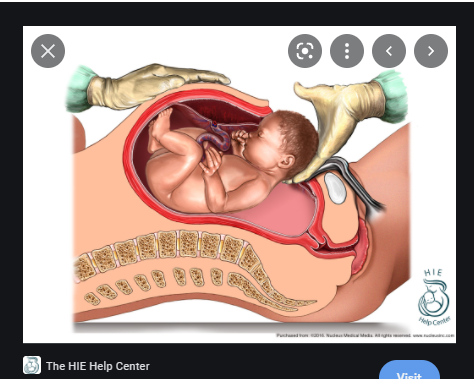Caesarean section death rate not significant, says NMA
By Jeph Ajobaju, Chief Copy Editor
Childbirth through caesarean section is rising in Nigeria because of repeat procedures and the death rate is not significant, according to Nigerian Medical Association (NMA) President Innocent Ujah.
Ujah, a professor of obstetrics and gynecology, said claims that more pregnant women are dying from complications during and after caesarean section are not correct.
He was reacting to a claim by a member of the House of Representatives, Sergius Ogun, that 300,000 women die annually in Nigeria as a result of caesarean section procedures, citing a medical survey.
“The House is concerned that the incidences of maternal mortality occasioned by caesarean operations are on the rise, with the latest medical survey revealing that no less than 300,000 women die annually in Nigeria as a result of the procedure.
“The House is also concerned that there is no vigorous effort on the part of the government to stem the tide of maternal mortality through provision of quality healthcare facilities,” Ogun said on the House floor in July.
“The House is worried that if the situation is left unattended to, the country may end up losing an alarming number of mothers in the process of childbirth.”
But Ujah countered that Ogun did not disclose the source of the medical survey he cited and the claim is not true.
__________________________________________________________________
Related articles:
Caesarean section rates rise globally
Lagos has lowest fertility rate, highest GDP; Katsina in reverse
__________________________________________________________________
Kamil Shoretire, a consultant obstetrician and gynaecologist at the Family Health Department, Federal Ministry of Health, Abuja, told PUNCH Healthwise that he is not aware of the 300,000 figure quoted by Ogun.
He urged pregnant women to always use hospitals for their antenatal care where they can be well informed on their delivery status.
“What [Ogun] said is not true. What is the total number of maternal deaths in Nigeria that you will have over 300,000 deaths from CS? I don’t agree with that figure, Ujah told PUNCH Healthwise.
“He needed to have quoted his source but I know that it is not true. Maternal deaths from CS in Nigeria are not significant at all.
“If he says the number of CS is increasing, yes, I will all agree, but I can’t agree to the claim that death from CS was increasing.
“To say that 300,000 maternal deaths occur from CS annually is a lie. Our total maternal mortality rate is not up to 300,000.”
Maternal mortality rates
Nigeria’s maternal mortality rate is 512 per 100,000 live births, according to the 2018 Nigeria Demographic and Health Survey.
In 2015, estimated maternal mortality ratio was over 800 per 100,000 live births, with approximately 58,000 maternal deaths that year.
In comparison, the total number of maternal deaths in 2015 in the 46 most developed countries was 1,700 – resulting in a maternal mortality ratio of 12 maternal deaths per 100,000 live births.
The World Health Organisation (WHO) says a Nigerian woman has a one in 22 lifetime risk of dying during pregnancy, childbirth, or postpartum/post-abortion, whereas in developed countries, the risk is one in 4,900.
On why more Nigerian women are giving birth through CS, Uja said: “The reason for the increase in CS is because of repeat CS. There are some women who, after the first and second CS, depending on the cause, will have a repeat CS.
“Once a woman has a second CS, she will also most likely have a repeat CS because if we don’t do that, when next she is trying to deliver, the uterus may rupture and she may bleed to death.
“Now, the reasons for doing the first CS are many. If the baby is breached, particularly if it is a first-time mother, the delivery will definitely be by CS.
“Also, if the baby is lying transverse, it has to be delivered by CS. If there is a foetal distress and if the woman has placenta previa, the baby will be delivered by CS.
“If the birth canal is small, a CS has to be performed. If a woman delivers by CS twice, it means that the rest of her delivery will be by CS.”
Making caesarean section free
Ujah insisted that CS is an acceptable mode of delivery and urged the government to make antenatal care, delivery, and CS free for all pregnant women in order to reduce maternal and infant deaths.
He sought women empowerment and girl child education, saying educated women are more likely to have hospital delivery where there are skilled birth attendants than illiterate women who often patronise traditional midwives or give birth at home.
In hospitals, he stressed, labour and delivery are supervised by skilled birth attendants such as gynaecologists and midwives











